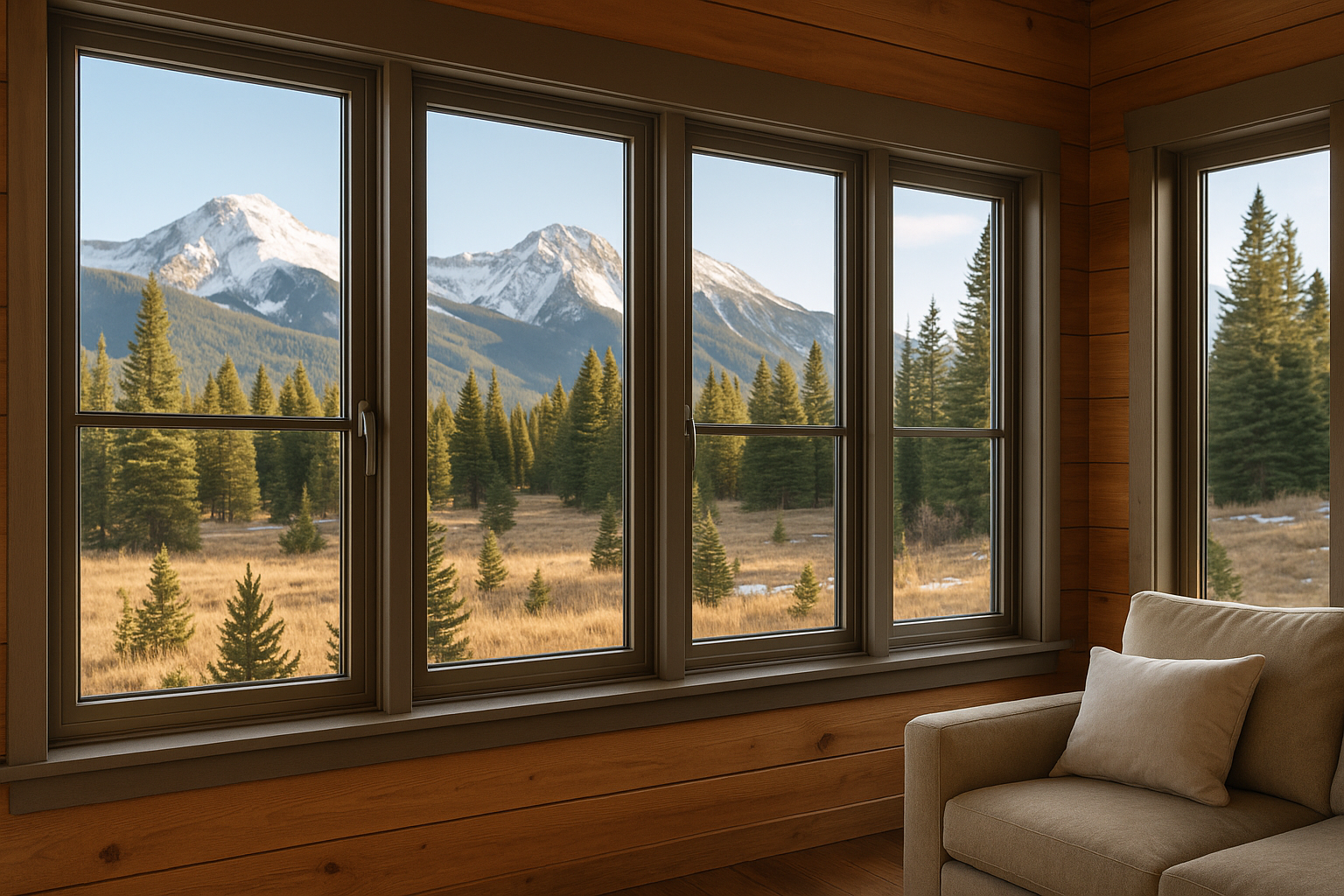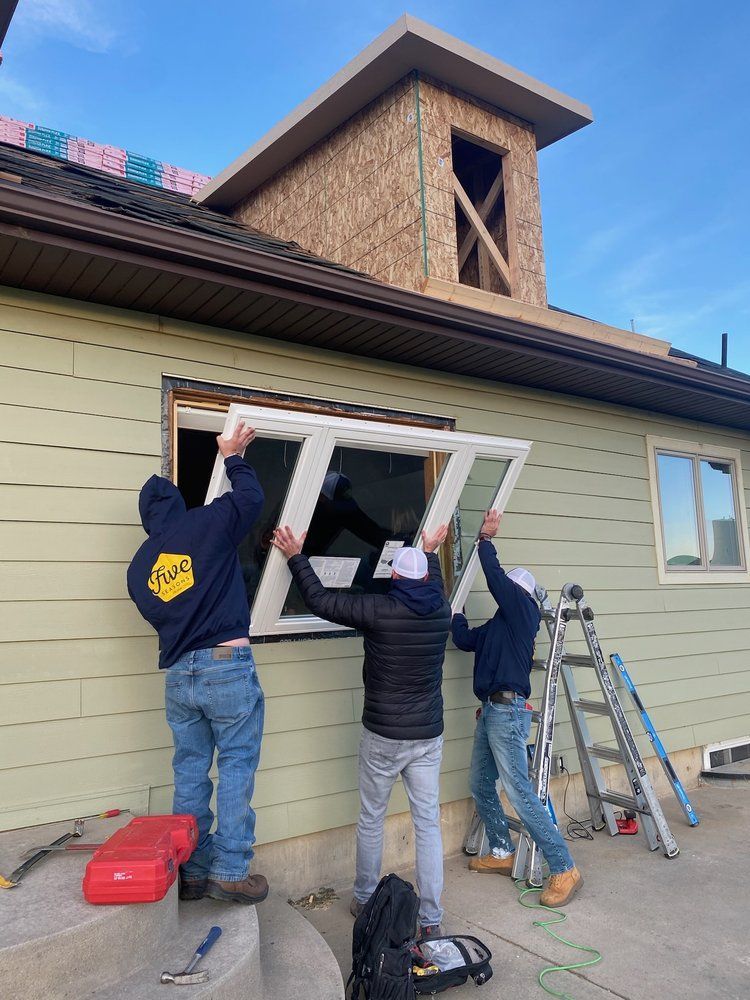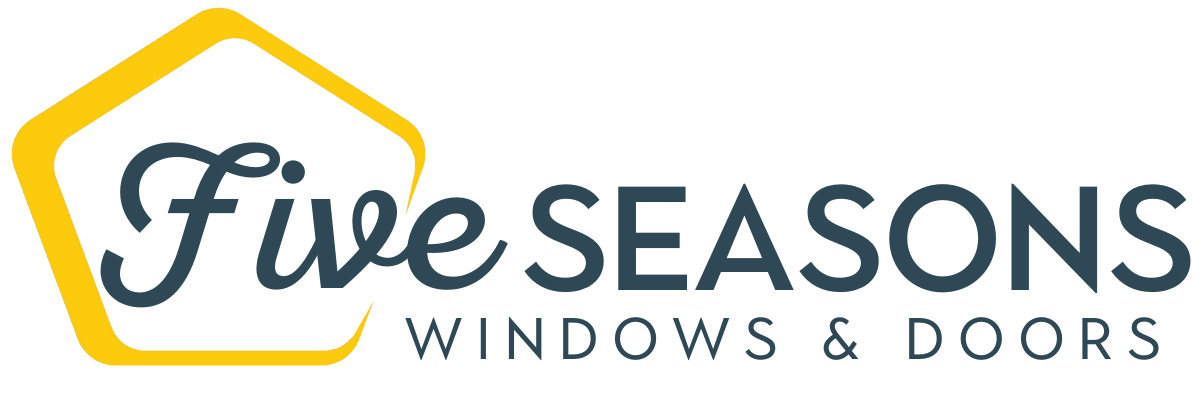Fiberglass windows are ideal for Colorado homes because they offer superior thermal insulation, exceptional structural stability, and resistance to extreme temperature swings. Their low thermal conductivity helps maintain indoor comfort year-round, while their rigidity prevents frame distortion — even in high-altitude or high-UV environments.
Recent studies show that fiberglass conducts heat 500 times less than aluminum and significantly less than vinyl, making it one of the most energy-efficient window materials available.
Whether you're restoring a mountainside cabin or upgrading a ranch-style home in Colorado Springs, one truth remains: your windows need to work harder in Colorado.
From intense sun exposure at high altitudes to freezing winter temperatures and sudden spring hailstorms, Colorado’s climate puts serious pressure on every part of your home. Windows are no exception — and that’s where fiberglass truly shines.
With unmatched durability, energy-saving capabilities, and modern design flexibility, fiberglass windows are quickly becoming a top choice for Colorado homeowners who want long-term performance and peace of mind.
What Makes Fiberglass Windows Unique?
Fiberglass windows are made from a composite of glass fibers and resin, creating a frame that is both incredibly strong and dimensionally stable. Unlike vinyl, which expands and contracts noticeably with temperature swings, fiberglass remains steady — even when exposed to intense heat or sub-zero cold.
Compared to wood, fiberglass doesn’t warp, rot, or require constant painting. And unlike aluminum, it doesn’t transfer outdoor temperatures indoors.
The result? A window material that checks every box: strong, efficient, low-maintenance, and ideal for Colorado’s unpredictable weather.

Built for All Seasons: Energy Efficiency in Colorado's Climate
Energy efficiency is one of the top reasons homeowners make the switch to fiberglass — and in Colorado, it's a game-changer.
Fiberglass insulates exceptionally well, helping your home stay warm during long winters and cool during dry summer heat. That means less strain on your HVAC system and lower monthly utility bills. In cities like Denver, Boulder, or Fort Collins, where temperature shifts between day and night can be extreme, these windows help maintain comfort and cut costs.
👉 Related: Best Fiberglass Window Companies in Colorado: What Homeowners Should Know
Tap into Rebates: Colorado Energy Incentives
Upgrading to fiberglass can also make you eligible for local rebates. Programs like Xcel Energy offer incentives for Energy Star–rated windows, which fiberglass often qualifies for. That means you could earn back part of your investment just by choosing a more efficient frame.
Built to Withstand Colorado’s Extremes: Durability That Lasts
Snowstorms. UV-heavy summers. High winds. Hail. Colorado gives windows a workout — but fiberglass stands strong.
Unlike vinyl, which can warp or crack, fiberglass maintains its shape and strength year after year. It's also moisture-resistant, so you don’t have to worry about rot or mold in shaded areas or snow-heavy elevations.
This durability means better long-term performance, fewer repairs, and no need for constant upkeep.
Reliable at Altitude: Performance in Mountain Homes
Homes in places like Estes Park or Breckenridge face not just extreme weather, but pressure changes from high elevations. These shifts can damage lower-quality windows — but fiberglass resists seal failure, frame distortion, and pressure imbalance. That makes it the top choice for Colorado's mountain homes.
Curb Appeal Without Compromise: Design Flexibility in Fiberglass
Homeowners don’t just want tough windows — they want beautiful ones. Fiberglass delivers both.
Today’s fiberglass windows come in a wide array of colors and finishes, including wood-look textures that rival real wood. You can choose from slim modern profiles or traditional frames with grilles and trim details.
Because fiberglass is so strong, it allows for narrower frames and more glass — letting in more natural light and better views of the Colorado landscape.
Whether you're remodeling a historic home in Boulder or building new in Colorado Springs, fiberglass gives you form and function.
Quieter Living: Noise Reduction Benefits
Fiberglass windows also help reduce outside noise. When combined with double or triple glazing, they’re ideal for homes near busy roads, city centers, or schools. The stable, tight seal keeps both air and sound from leaking through — so you enjoy more peace indoors.
Eco-Friendly and Built to Last: Fiberglass for the Future
Fiberglass is a green choice. Made with recycled glass and sand-based materials, it has a lower environmental footprint than many plastics or metals.
Even more important? Its long lifespan — often 30 to 40 years — means fewer replacements and less waste. And because it’s so efficient, you’ll use less energy over time, which benefits both your wallet and the planet.

Cost vs. Value: A Smart Long-Term Investment
Fiberglass does cost more upfront than vinyl — but it often pays for itself in the long run. It lasts longer, cuts down on energy use, and increases your home’s resale value.
For homeowners who plan to stay put or want a worry-free upgrade, fiberglass is one of the most cost-effective choices available.
When to Consider Upgrading to Fiberglass Windows
You might want to upgrade if you notice:
● Drafts around your window frames
● Foggy glass from broken seals
● Warping, cracking, or fading frame
● Rising energy bills despite moderate HVAC use
● More outside noise than usual
The best times for replacement in Colorado are spring and early fall — when weather is stable and contractors have availability.
People Also Ask About
1. Are fiberglass windows better than vinyl in Colorado?
Yes — especially in Colorado’s varied and sometimes harsh climate. While vinyl windows are budget-friendly and widely available, they tend to expand and contract more with temperature fluctuations. This can lead to warping, seal failure, and decreased energy efficiency over time — particularly in areas with strong sun or sub-freezing winters.
Fiberglass, on the other hand, maintains its structural integrity regardless of weather conditions. It resists UV damage, doesn’t warp or swell, and retains a tighter seal — making it more dependable and longer-lasting in Colorado’s high-altitude environment.
2. Do fiberglass windows help reduce energy bills?
Absolutely. Fiberglass has a naturally low thermal conductivity, which means it doesn’t transfer heat or cold easily. This property, combined with high-performance glazing, helps prevent drafts and stabilizes indoor temperatures throughout the year.
In Colorado — where heating in winter and cooling in summer are both important — that insulation translates into real savings. Many homeowners see lower monthly energy bills after replacing old or underperforming windows with fiberglass models, especially when upgrading to ENERGY STAR®–qualified units.
3. How long do fiberglass windows typically last?
On average, fiberglass windows last between 30 and 40 years — with minimal maintenance required. That’s nearly double the lifespan of vinyl windows, which usually last about 15 to 20 years depending on exposure and upkeep.
Fiberglass frames resist common issues like rot, corrosion, and UV degradation, so they stay stronger for longer. This makes them a smart long-term investment for Colorado homeowners who don’t want to worry about window replacement again for decades.
4. Can fiberglass windows look like wood?
Yes, and impressively so. Many fiberglass window manufacturers offer finishes that replicate the texture and color of real wood — including popular grains like oak, mahogany, and walnut. These finishes are baked into the frame or applied in a way that requires no refinishing or sealing.
Homeowners often choose fiberglass when they want the warm, traditional look of wood without the maintenance that comes with it. Whether you’re preserving the charm of a historic home or elevating a modern build, fiberglass offers a flexible design solution.
5. Are fiberglass windows a good fit for mountain homes?
Definitely. Mountain homes in Colorado face unique challenges, including rapid elevation changes, extreme cold, intense UV exposure, and heavy snowfall. These conditions can compromise less durable materials.
Fiberglass excels in high-altitude environments because it’s structurally stable and weather-resistant. It won’t bow under snow loads, crack from cold snaps, or fade from high UV levels. That makes it an ideal choice for cabins, lodges, and homes in areas like Vail, Aspen, or Breckenridge — where reliability and efficiency matter most.
Common Misconceptions About Fiberglass Windows
💡 “They’re too expensive.”
✔️ Fact: They cost more upfront, but their longevity and savings on energy bills make them more economical over time.
💡 “They look too modern.”
✔️ Fact: Today’s fiberglass windows offer woodgrain textures and colonial styling for traditional homes.
💡 “They’re hard to repair.”
✔️ Fact: They rarely need repairs at all — and when they do, the fixes are typically simple and low-cost.
Our Take
At Five Seasons Windows, we’ve installed thousands of windows across Colorado — and fiberglass is our go-to recommendation for homeowners who want durability, style, and serious energy savings.
We’ve seen fiberglass thrive in mountain cabins, suburban homes, and urban remodels. If you want to upgrade once and not worry about windows again for decades, fiberglass is a choice you’ll never regret.
Final Takeaway
Fiberglass windows offer unmatched value for Colorado homeowners. They insulate better, resist damage from the elements, reduce noise, and maintain their beauty for decades.
In a climate as demanding as Colorado’s, you need a window that does more than look good — you need one that performs under pressure. Fiberglass is that window.
If you’re ready to upgrade your windows, trust the material that’s built for Colorado. And trust Five Seasons to help you get it done right.
Get Started Today
Five Seasons Windows & Doors is Colorado’s top-rated local window company with 230+ 5-star reviews. We offer expert advice, no-pressure quotes, and flexible project options — including phased installs. Schedule your consult today.



